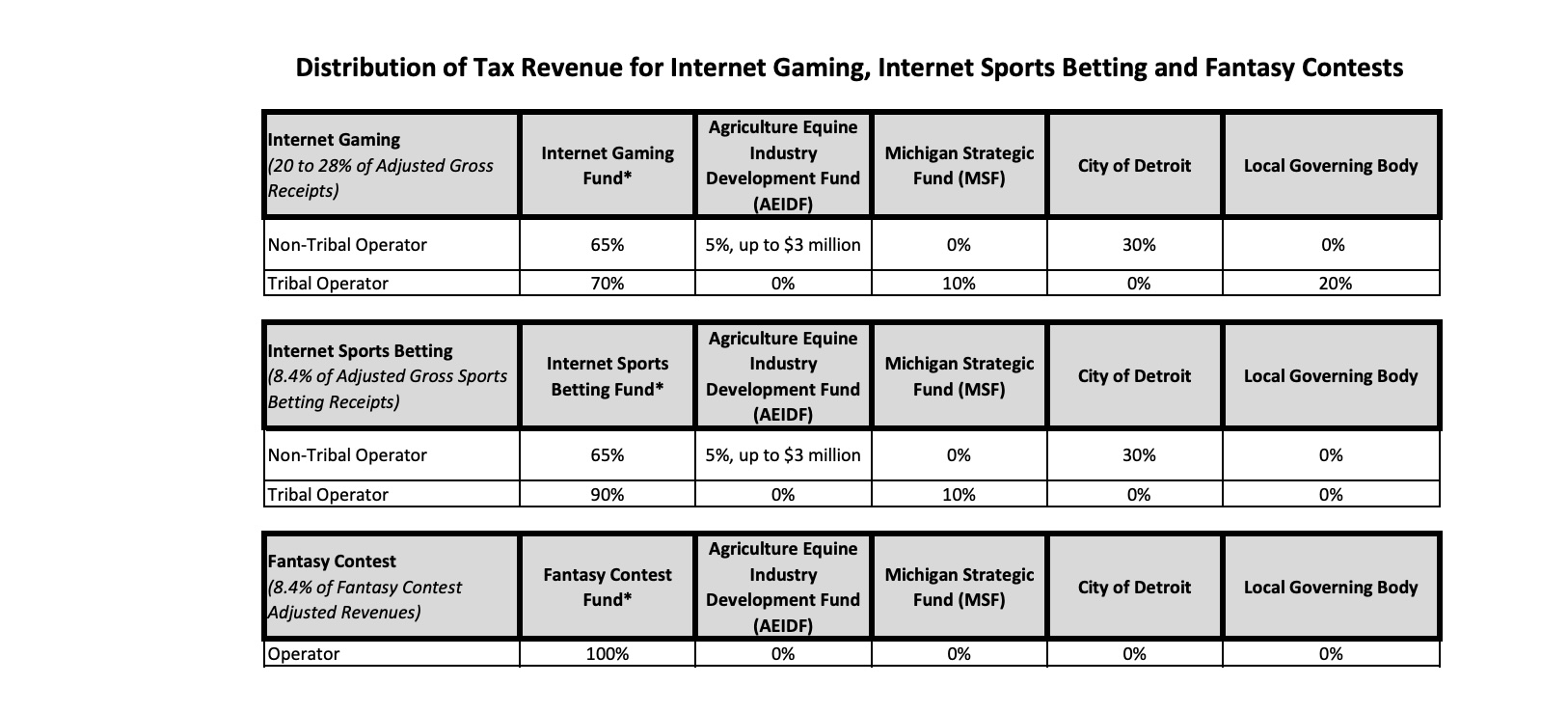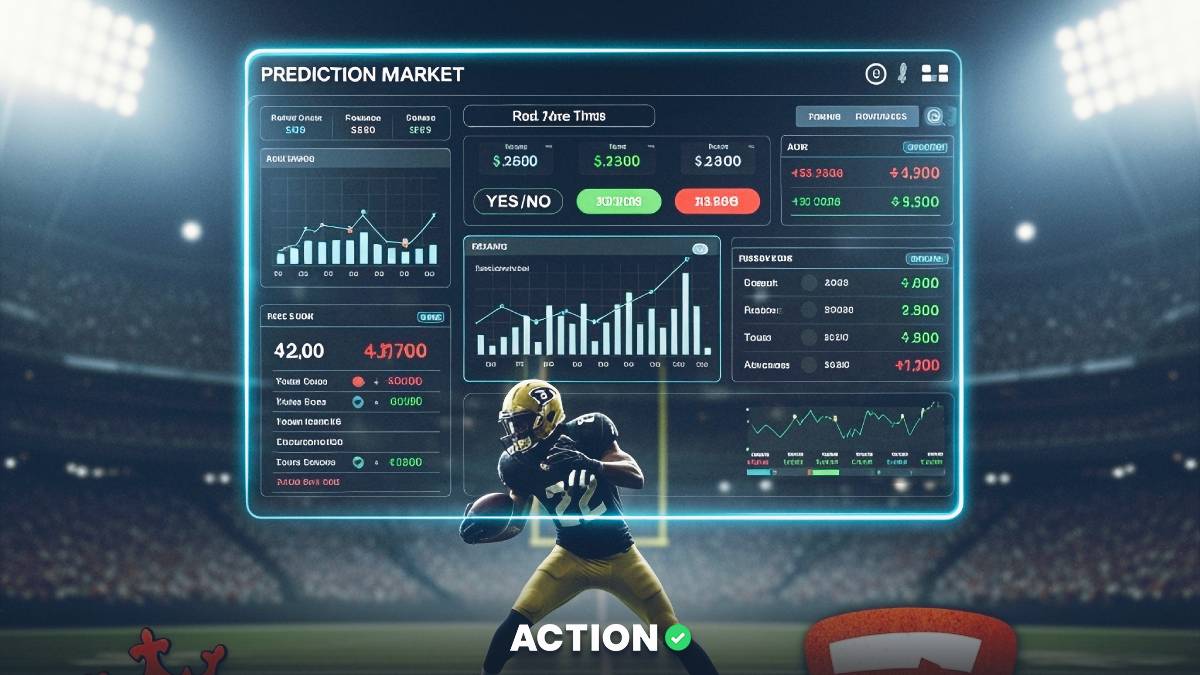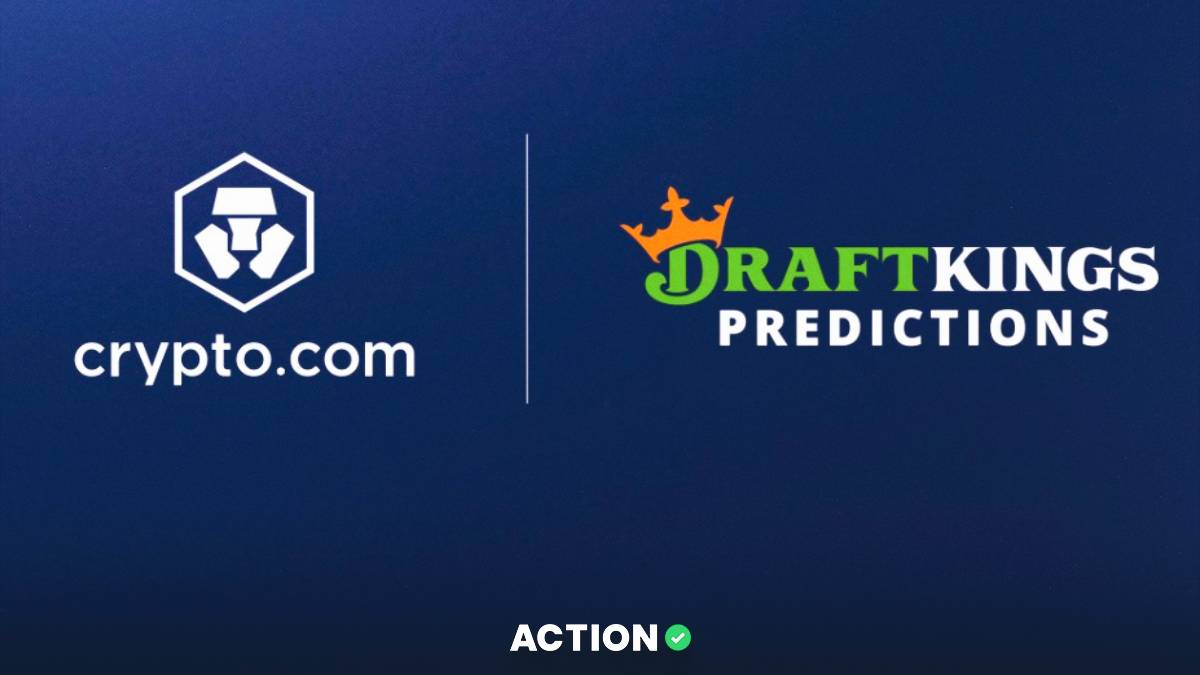Michigan's online casinos are rolling. The industry experienced an impressive surge in March, setting a new record with its monthly gross receipts.
According to the latest figures from the Michigan Gaming Control Board, the combined total from internet gaming (iGaming) and sports betting reached $293.5 million, marking an increase of more than 9% when compared to February in the Wolverine State.
As of March 2025, 15 commercial and tribal operators have been authorized to offer iGaming and/or internet sports betting in Michigan. Currently, 12 operators offer internet sports betting, and 15 offer iGaming.
Monthly Gross Receipts: Breaking New Records
In March, iGaming gross receipts soared to $260.5 million, a significant boost from February's $222.5 million.
This accomplishment not only sets a new monthly record but also surpasses January 2025's previous high of $248.2 million. And it comes on the heels of the news that online gaming had a banner year last year, so the revenue continues to build.
On the flip side, gross receipts from internet sports betting fell to $33.0 million, down from $46.0 million in the previous month, highlighting the unpredictable nature of the sports betting market.
Adjusted Gross Receipts: iGaming Shines Amid Sports Betting Decline
Michigan's combined adjusted gross receipts (AGR) for iGaming and internet sports betting hit nearly $261 million in March. iGaming contributed a substantial $246.1 million, reflecting a 17.7% rise from February. However, internet sports betting AGR witnessed a dramatic 46.4% drop, settling at $14.6 million.
When compared year-over-year, iGaming AGR showed a robust increase of 26.5%, while sports betting AGR plummeted by 45.3% from March 2024 figures.
Sports Betting Handle: A Substantial Uptick
The total internet sports betting handle jumped to $475.1 million in March, demonstrating a notable 25.1% increase from February's $379.8 million.
This uptick suggests that while sports betting receipts took a hit, the overall interest and participation in sports betting are gaining traction among Michiganders.
State and Local Contributions: A Revenue Boon
Operators reported total state taxes and payments of $51.4 million in March. Of this, iGaming alone accounted for $50.5 million, while internet sports betting contributed $874,052.

The City of Detroit also saw considerable revenue, with its three commercial casinos paying $13.4 million in wagering taxes and municipal services fees. Similarly, tribal operators added significant funds, with $6.0 million paid to their governing bodies.
These numbers could increase even further if lawmakers get their way. The group is reviewing two newly introduced bills that propose slight increases to the state's tax rates for online casinos and sports betting.
Online Casinos in Michigan Still in Infancy
The journey to establishing a thriving online gaming market in Michigan has been progressive.
Legalizing online gaming began with the passage of the Lawful Internet Gaming Act in December 2019. This legislation paved the way for both commercial and tribal casinos to launch online platforms, setting the stage for Michigan to become a prominent player in the digital gaming arena.
The first online casinos and sportsbooks launched in January 2021, a year marked by rapid growth and adaptation.

Since then, Michigan's online gaming landscape has expanded swiftly, supported by robust regulatory frameworks and active state oversight. The state has already awarded the largest online progressive jackpot ever, thanks to its partnership with DraftKings Casino, and it's on the verge of doing it again.
This growth trajectory is a testament to the collaborative efforts between regulatory bodies, operators, and stakeholders committed to ensuring a fair and transparent gaming environment.
Michigan Online Casinos Expected to Stay Strong
As Michigan continues to shatter iGaming records, the focus remains on sustainable growth and maintaining a strong regulatory environment.
The market’s expansion offers opportunities for further innovation and integration of new technologies, ensuring that Michigan remains at the forefront of the online gaming industry. Such milestones not only boost the state's economy but also underscore the potential of the digital gaming sector as a significant revenue stream.

But Michigan is not alone in embracing the online casino revolution. Several other states, including New Jersey, Pennsylvania, and West Virginia, have also legalized online casinos, cultivating competitive and vibrant gaming markets of their own.
These states have adopted similar regulatory frameworks to ensure player safety and fair play while capitalizing on the economic benefits of online gaming. Additionally, for those who prefer a different kind of gaming experience, social and sweepstakes casinos offer an alternative. Players can enjoy a variety of casino games using virtual coins, which provide an engaging gaming environment without wagering real money.
These platforms operate under specific sweepstakes laws, allowing players to redeem prizes, thereby broadening the appeal and accessibility of online casino gaming nationwide.
Remember To Practice Responsible Gambling Habits
While the growth of online casinos presents exciting opportunities for players, it is crucial to engage with these platforms responsibly. Gambling should always be viewed as a form of entertainment, not a means of achieving financial gain.
Players are encouraged to set limits, recognize the signs of problem gambling, and seek support if needed. Many online casinos offer resources and tools to promote responsible gaming, ensuring that the fun remains at the forefront without detrimental effects.









